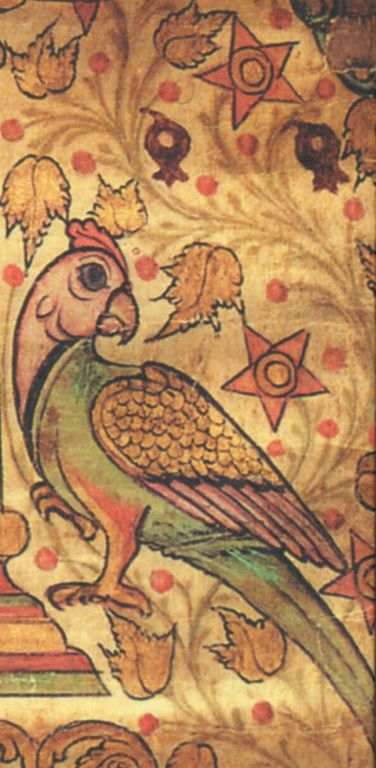1981
51. When Moshe Received Knowledge
Rahel Nehemia, Toba Sofer and others. Recorded by Avigdor Herzog. Moshav Taoz, December 23, 1981. CD Track 23; III-15.
Muyiṃbāya taṃbirānḍa aṟivěllāṃ mośěkku
Aṟivu kŏņḍĕppŏḻuṃ tandĕ stutikkunnu
1. The Lord Who is First gave all knowledge to Moshe,
And with that knowledge he gave praises to God.2. On Sinai Mountain, God appeared in royal splendor.
On Seir Mountain, there the fire was burning.3. “The fragrances of all this world: gather them together.”
All of them were gathered and put into the fire.4. “Oh, let that smoke go up—up into heaven.”
Then that smoke went up—up into heaven.5. Mutaliyar Moshe went up the mountain.
Mutaliyar Moshe went and spoke about it.6. To whom? To his brother—to Aaron Hacohen.
“Oh Moshe, look with care! Receive it in your hands.”7. Moshe then took it but did not look with care.
Because it became heavy, it fell down from his hands.
8. “Oh Moshe, make the effort! Gather and write it.”
So he made the effort and he wrote it down,9. For the redemption of the Israel children.
Blessed, blessed be Mutaliyar Moshe,10. And blessed, blessed be Aaron Hacohen,
And blessed, blessed be all the Israel children.
11. May Tamburan the One Lord be forever blessed.
May Your Holy Name be forever blessed.
This short song is filled with interesting elements—its unusual slant on the story of Moshe’s receiving the Torah, its reference to midrash, its particular mixture of Hebrew and Malayalam terms, and its performance in a kalippattu dance circle
The mountain of revelation is here referred to as both Sinai and Seir, an implicit reference to the biblical passage Deuteronomy 33:2: “The Lord came from Sinai and shone upon them from Seir.” I have not found reference elsewhere to the story of incense being gathered from all over the world and burned in the fire.
In the biblical account, Moshe alone goes up Mount Sinai and brings down the tablets of the Torah, but here he is accompanied by his brother Aaron, who advises him on how to deal with this momentous responsibility. Despite Aaron’s warning that he should look carefully (literally, “with seeing hands”) while receiving the Torah, Moshe takes it “without seeing hands,” and it falls.
The puzzling Malayalam word that explains why the Torah fell down is spelled differently in each of the three notebook texts. In her original translation (May 1999), Ruby Daniel read it as the Hebrew kaved, heaviness; hence the line translated above “because it became heavy.” She explained that Moshe was able to carry the stone tablets down the mountain only because the holy letters written on them made them light in weight—until he saw his people worshipping the golden calf, whereupon the holy letters flew off the tablets and they were then so heavy that he dropped them. He did not throw them down, she said, contradicting the biblical account and also several midrashic stories in which Moshe purposely destroyed the suddenly heavy tablets. Ginzberg recounts a version of this story (1968, 3:129) and cites contradictory midrashic sources about the breaking of the tablets (1968, 6:34n279).
Following a different spelling of the puzzling word, Zacharia notes that it could be a Malayalam word for “trembling,” which would sensibly render his interpretation “because he was trembling” (2005:171–172). In either case, the simple dialogue in this song conveys a dramatic portrait of the two brothers, different from the biblical account of conflict over Aaron’s creation of the golden calf in Moshe’s absence. Here Aaron’s concern for his brother continues after the tablets are dropped, when he urges the presumably shaken Moshe to try very hard to write down all that had been lost. The song concludes with blessings for both brothers, along with the children of Israel and the Lord.
In this song, the epithets for Moshe and Aaron are notable. Whereas Aaron is given the Hebrew title “Aaron Hacohen” (Aaron the priest), Moshe is called by the Jewish Malayalam term “Mutaliyar,” a traditional Kerala term used for the leader of a community, as it was used in songs 4 and 5. This is the only song in which it is applied to the biblical Moshe as the leader of his community.
The simple melody holds a steady rhythm, punctuated with handclapping and foot-stamping in the 1981 video recording of a Hanukkah kalippattu dance performance in Moshav Taoz (Johnson 2016). The singers and dancers there had immigrated from Kadavumbhagam-Kochi, the only Jewish community that is known to have performed kalippattu dances in the twentieth century; and all three texts of the song are found in Kadavumbhagam notebooks.







